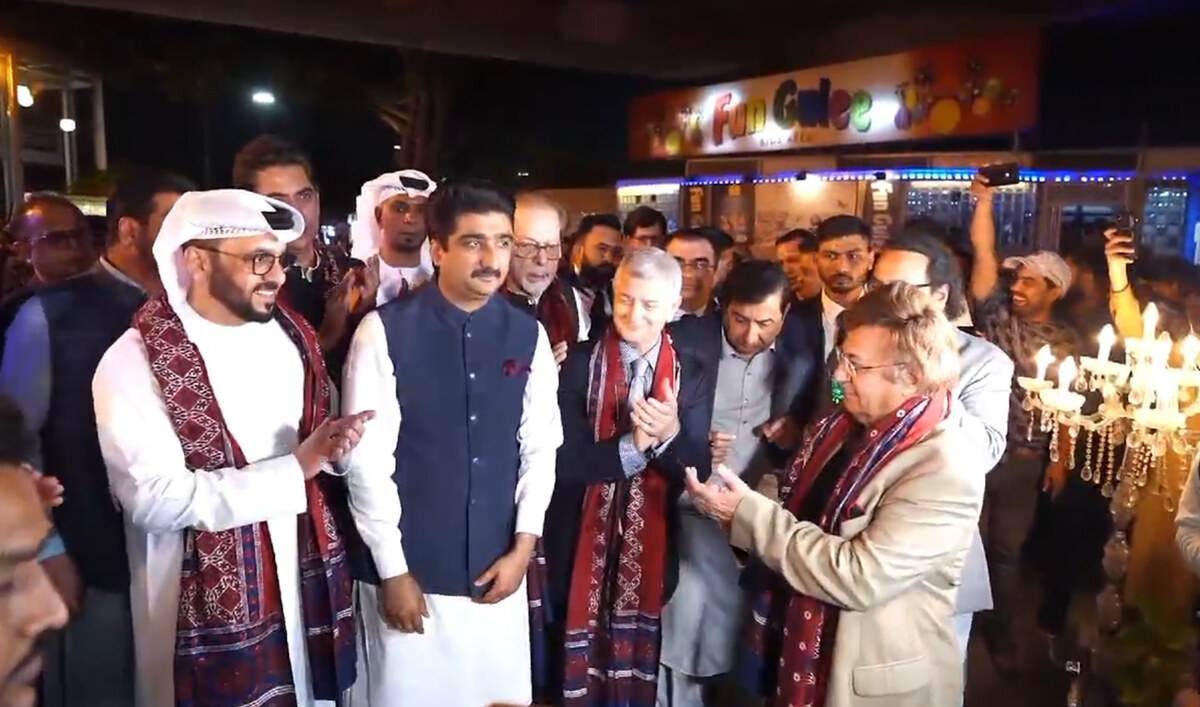LAHORE: Officials in Pakistan have threatened to block the cell phone services of citizens who refuse to get vaccinated against COVID-19 in the country’s two largest provinces, while rights activists say awareness campaigns that encourages informed consent of citizens will improve outcomes, rather than forcing people to get vaccinated against their will by imposing penalties.
Pakistan’s largest province of Punjab, home to at least 110 million people, announced on June 10 those who chose not to get jabs would have their SIM cards blocked. A SIM card, which stands for Subscriber Identity Module, is needed for a mobile phone to connect to a carrier network to make calls, send texts and more.
Mobile SIMS of people not getting vaccinated may be blocked, it was decided in Cabinet meeting under the chair of Minister for Health Dr. Yasmin Rashid at Civil Secretariat. The government will open walk-in vaccination of over 18 years of age group. pic.twitter.com/VXJWAWGzkd
— Primary & Secondary Healthcare Department Punjab (@PSHDept) June 10, 2021
This Monday, a second Pakistani province, Sindh, announced similar measures in an effort to compel more people to get inoculated.
Speaking to Arab News, Punjab Health Minister Yasmin Rashid said though no action had been taken to block phone connections so far, the proposal was very much under consideration, along with other penalties for the unvaccinated.
“There are 700 fixed vaccination centers in the province while a 24/7 vaccination drive is underway in 27 teaching hospitals across the province,” she said, outlining the provincial government’s actions to increase the pace of vaccination and meet June targets. “We plan to go for this option [blocking of mobile phone sims] as a last resort.”
“It would be done district wise,” the minister added. “If the provincial districts fail to meet the target set by the health ministry till June 30th, we will take strict action against local administrations and the blocking of sims would come at a later stage.”
Punjab Health Department spokesperson Sajjad Hafeez said the blocking of cell phone connections was possible since the Punjab government’s Immunization Service was linked to the National Database and Registration Authority (NADRA)., Pakistan’s ID database.
“When a person gets the first jab of the vaccine, his or her name is put in a yellow category,” Hafeez said, adding that after a person received a second jab, their national ID card number was blocked in the system so that no one else could get vaccinated against that identity card. “On the completion of two doses, a person’s name is moved onto a green category and he or she is issued a certificate.”
Hafeez said the health department had therefore directed NADRA to provide a list of vaccinated and non-vaccinated people identified by the system by June 30, saying those who were not fully vaccinated by then would get two warnings through mobile text messages, with punitive action taken after two weeks of remaining unvaccinated.
On the pace of Punjab’s vaccination campaign, Hafeez said 275,000 were being inoculated in the province daily, which the government planned to increase to 400,000.
“Lahore and Rawalpindi are two districts where more than 20 percent people are already vaccinated so far, followed by Faisalabad, Gujranwala and Multan,” he added.
When questioned about the Punjab and Sindh government’s plans to block cell phone connections of the unvaccinated, Pakistan Telecommunication Authority (PTA) spokesperson Khurram Mehran told Arab News such instructions could only come from the federal government.
“We have not been directed by the federal government to chalk out a plan to implement such orders,” he said.
Rights activists have advised against draconian measures to make people get the vaccine, saying it would be more productive if the government launched awareness campaigns.
“The focus of the government’s efforts should be informational campaigns to encourage vaccinations using mass media,” activist Usama Khilji, a director at digital rights advocacy group Bolo Bhi, said. “Radio, television, print, and social media should all be used to send out key messages, including from the prime minister’s office for the highest impact. Once people have sufficient information to make a decision, should governments move to implement disincentives to not getting vaccinated, they must not violate other fundamental rights such as the right to access information and communicate through SIM cards.
“The government, rather, should focus on educating people,” Khilji told Arab News, “and creating awareness to dispel misconception regarding vaccinations.”


















